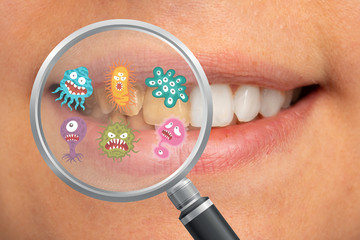Cosmetic dentistry is a collection of treatments that make teeth healthy and attractive. However, these procedures are not always covered by insurance.

A general dentist like Dr. Chelsea Mason Dental deals with your oral health by preventing and treating problems. A cosmetic dentist enhances your smile through aesthetic improvements such as teeth whitening. The difference between the two lies in treatment motivation, purpose, and use of dental materials.
Aesthetic dentistry is more than just making your teeth look pretty. It also helps you feel better about yourself, which can boost your self-confidence and improve the quality of your life. If you have crooked or missing teeth, a dentist can make them straight and even, so they’re easier to care for. This makes them less likely to suffer from decay or other health problems. Aesthetic dental procedures can also improve the way you speak. If you have a lisp, for example, fixing this can help you sound more professional. In addition, a straighter smile is easier to maintain, so you’re more likely to stick with it.
Cosmetic dentistry is often grouped with aesthetic dentistry, but there are some key differences between the two. The main difference is that cosmetic dentistry focuses on improving the appearance of your teeth, while aesthetic dentistry goes beyond that to address issues like a bad bite.
Some examples of cosmetic dentistry include whitening, veneers, and dental implants. However, these treatments aren’t typically covered by insurance unless they’re considered necessary for oral health. So, if you’re considering cosmetic treatment for your smile, it’s important to talk with your dentist to find out what your options are and what they may cost.
The main goal of a cosmetic dentist is to give you the perfect smile. Aesthetic dentists will consider your needs and wants when deciding on the best treatment for you, which can help you feel confident about your smile. However, the most important thing is to get your teeth healthy first. If you have any diseases or infections, these should be treated before undergoing any cosmetic dentistry procedures.
There’s no reason to put off getting your smile in tip-top shape. You should always visit your regular dentist for dental checkups and cleanings, but you can also see a specialist to address any cosmetic concerns. Aesthetic dentists have the tools and skills to make sure your smile is camera-ready, so you can feel confident about your smile no matter what the occasion. Contact our cosmetic dental office to schedule an appointment today!
Function
Cosmetic dentistry focuses on improving the appearance of your smile. It can include treatments like teeth whitening and veneers, but it also includes orthodontic methods such as braces or clear aligners and gum contouring to reduce the amount of gum tissue showing when you smile.
While most cosmetic treatments are elective rather than necessary, they can still make a significant difference in your self-image. You may have a chipped tooth that you are embarrassed about, for example, or you might want to replace a missing tooth. Regardless of your reason, you should first treat any health problems, such as cavities or gum disease. You can get these treatment options from a general dentist, who can offer restorative procedures such as dental fillings or crowns.
A general dentist focuses on treating and preventing oral problems, so they will generally provide treatments that restore function and health to your teeth and gums. For example, they can provide you with composite bonding to repair a chipped tooth and improve its aesthetics, and they can help you maintain good oral hygiene to protect your overall health.
Cosmetic dentists can also address functional issues that affect your smile, such as misaligned teeth or a crowded mouth. If you have crooked or dense teeth, however, it might be more practical to undergo orthodontic treatment first before considering cosmetic treatments. Otherwise, your overlapping teeth could eventually break, and you may develop headaches or jaw pain due to an uneven bite.
Although some cosmetic treatments may be considered elective, you should talk to your dentist about what you hope to achieve with them. They can then design a treatment plan that will meet your needs.
The most common cosmetic treatments include teeth whitening and veneers. Both can dramatically improve the look of your smile, and they are relatively quick and painless. However, you should always visit a trusted dentist to ensure you receive the highest-quality materials and the best results. With advances in dental technology, it is now easier than ever to create natural-looking cosmetic treatments. For example, veneers are now available in a variety of translucent materials that match the color and texture of your teeth, so no one will know you have had any work done.
Health
While cosmetic dentistry is mostly thought of as a way to improve appearance, it can also help address health issues. For example, teeth whitening can be used to remove stubborn stains that can lead to cavities and gum disease. Cosmetic dentists can also repair chipped teeth and fill in gaps or spaces between the teeth. These procedures can be a good alternative to tooth extraction, which is a more invasive and expensive procedure.
Crooked or misaligned teeth can interfere with proper oral hygiene, making it more difficult to clean between the teeth and increasing the risk of gum disease. Cosmetic dentistry treatments such as tooth straightening can make it easier to brush and floss your teeth, leading to better dental health.
Missing or broken teeth can also have a negative impact on your overall health. Cosmetic dentistry can help restore or replace these teeth with treatments such as veneers, dental implants, and crowns. These can not only help to improve your smile and self-confidence, but they can also aid in the chewing of food and prevent jaw problems and fractures.
Aesthetic improvements can help boost your mood, making you more confident in both your personal and professional lives. People who are happier with their smile tend to be more likely to take good care of their teeth, which can have a positive effect on their overall health.
Cosmetic dentistry is often considered elective because it isn’t necessary for a healthy mouth. However, many patients choose to have these procedures because they want to look and feel their best. If you’re considering getting cosmetic dental treatments, find a dentist who specializes in this field to get the most out of your treatment.
Cosmetic dentistry is a broad term, and there are a wide variety of options available for improving your smile. These treatments include teeth whitening, dental veneers, dental implants, crowns and bridgework, and tooth reshaping. Depending on your needs, you may need one or more of these procedures. While most of these procedures aren’t covered by insurance, they can be a great option for those who are unhappy with their smile or have other concerns.
Insurance
Cosmetic dental procedures can make dramatic improvements in the appearance of your teeth, boosting your confidence and self-esteem while improving your overall oral health. But before you decide to invest in these treatments, speak with a dental professional about what you want from your smile. They’ll help you determine whether you have any underlying dental issues that need to be treated first, like chips, gaps, or missing teeth.
Although cosmetic dentistry procedures are elective and not considered necessary for good dental health, they may be partially or fully covered by your insurance if you have existing problems like a chipped tooth, broken fillings, or severe discoloration. You can also use the results of your treatment to help you maintain good oral hygiene practices that will prevent future dental issues, such as crooked teeth and gum disease.
It is important to find a dentist who is trained in cosmetic treatments so that you get the best results. While most general dentists are able to provide cosmetic treatment, some specialize in particular areas, such as veneers and dental bonding, or have additional training in oral surgery.
A skilled cosmetic dentist can restore damaged or weakened teeth and improve the overall appearance of your smile. For example, if you have a missing tooth, your cosmetic dentist can fabricate an artificial replacement that will look and feel completely natural. The same procedure can help repair a cracked or chipped tooth by covering it with a ceramic crown and protecting the sensitive inner pulp tissue from harmful microorganisms.
A cosmetic dentist can even reshape or straighten your teeth, which can improve your ability to brush and floss. Crooked or misaligned teeth can be difficult to clean, increasing your risk of tooth decay and gum disease. In addition, they can affect your ability to eat and speak normally. With the right cosmetic dentist, you can have a healthy and confident smile that will last for years to come.


